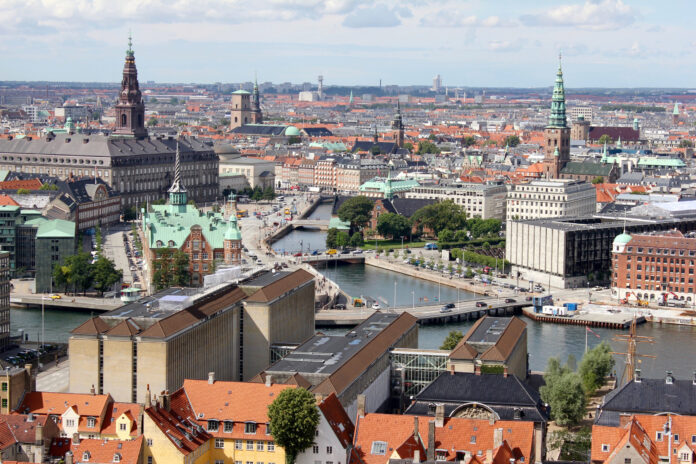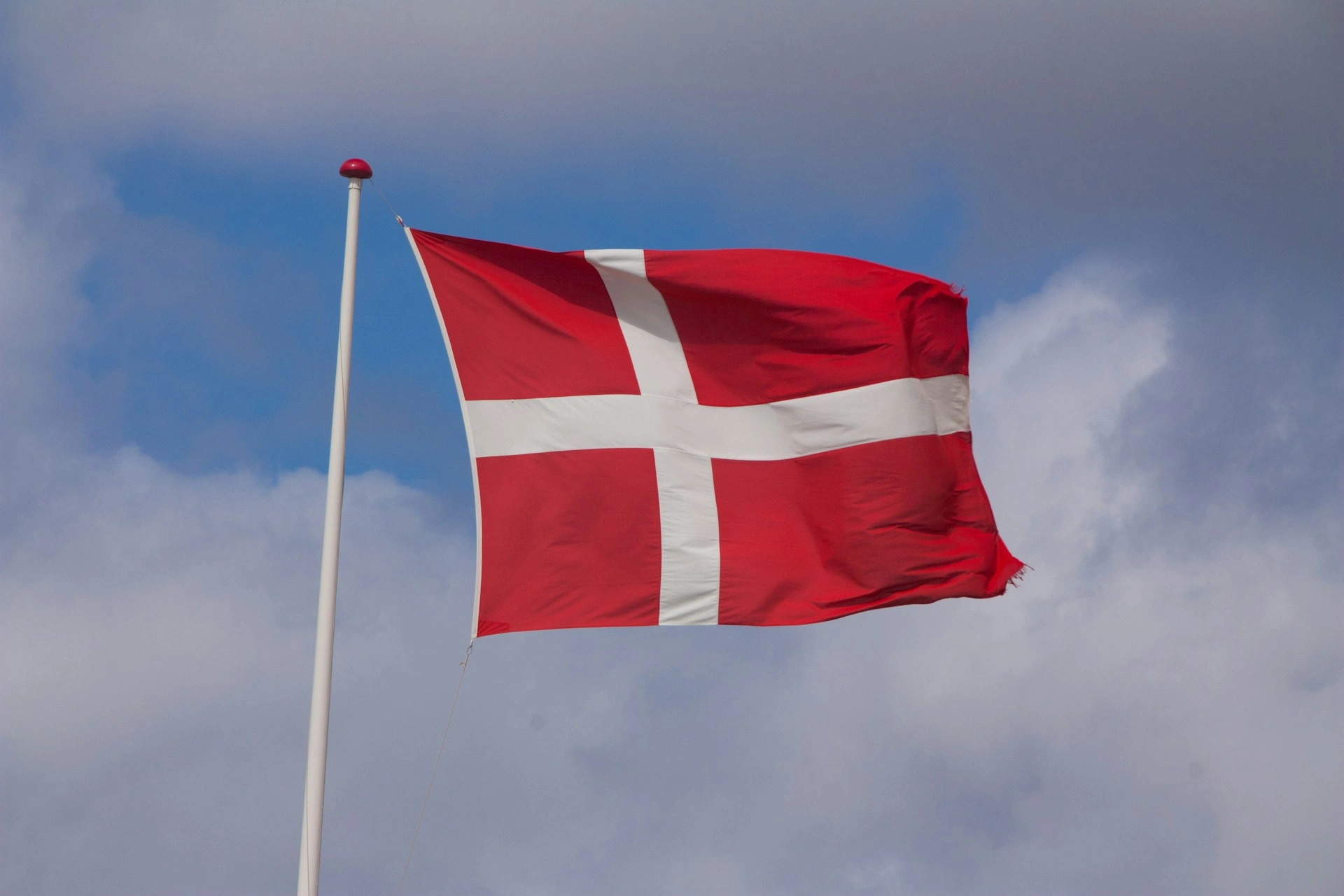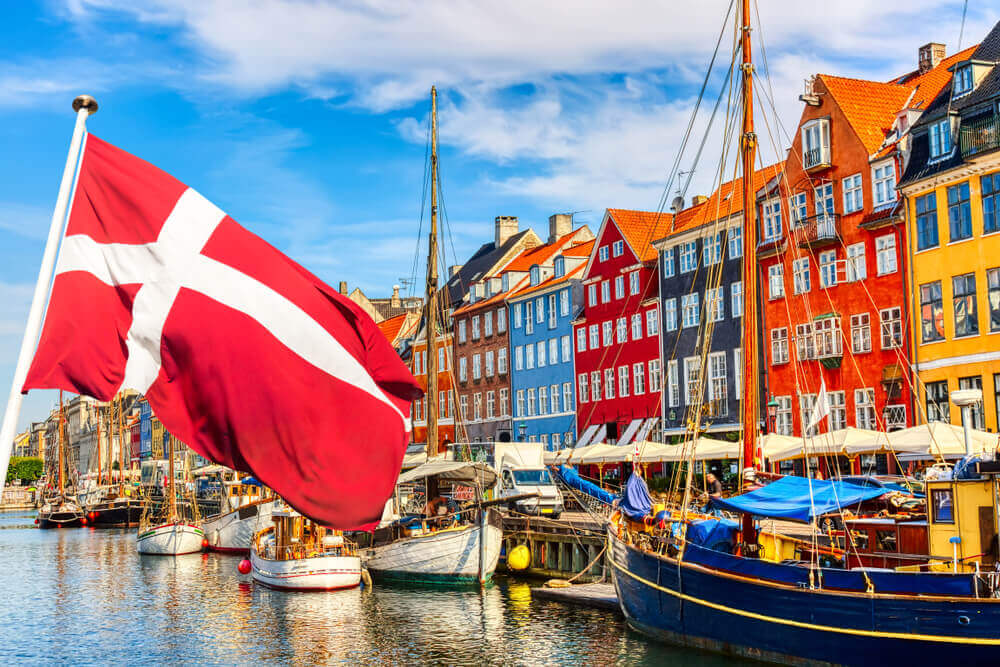An Overview of Denmark
Denmark a suitable location for businesses, a Scandinavian gem, stands as a beacon of innovation, sustainability, and social progress. Nestled in Northern Europe, this nation encompasses the Jutland Peninsula and an archipelago of 443 islands, with its lively capital, Copenhagen, at the heart. Renowned for its rich history, modern infrastructure, and commitment to green living, Denmark consistently earns recognition as one of the world’s happiest countries. Its seamless blend of tradition and modernity is reflected in its architecture, cuisine, and overall lifestyle. A strong economy, efficient public services, and a high quality of life further establish Denmark as a global leader and a model nation.
Living Standards in Denmark
Denmark is synonymous with an exceptional standard of living, driven by its comprehensive welfare system and emphasis on equality. Its robust public services provide residents with free healthcare and education, supported by a progressive taxation model. Danish cities prioritize livability, offering extensive green spaces, excellent public transport, and a widespread cycling culture that underscores the nation’s eco-friendly ethos.
Work-life balance is central to Danish society. Flexible working hours, high wages, and low unemployment rates create economic stability and enable residents to enjoy leisure and family time. Denmark’s commitment to renewable energy and sustainable living ensures a clean and healthy environment, further enhancing the quality of life for its citizens.
Denmark’s Personal Taxation System
Denmark operates one of the most progressive tax systems globally, reflecting its focus on equality and public welfare.
- Income Tax Rates
The Danish income tax system follows a sliding scale, with higher earners contributing more. In 2024, tax rates range from 8% to approximately 52%, encompassing municipal, state, and healthcare taxes. - Deductions and Allowances
Residents benefit from numerous deductions, including those for pension contributions, union memberships, and commuting expenses. These deductions ease the financial burden and ensure equitable contributions. - Value for Money
Taxes in Denmark fund a world-class welfare system, ensuring free healthcare, education, and robust unemployment benefits. This creates a harmonious balance where higher taxes translate into unparalleled social security and quality of life.
Corporate Taxation in Denmark
Denmark’s corporate tax framework is designed to foster a thriving business environment, encouraging innovation and sustainability.
- Corporate Income Tax
The corporate tax rate is set at 22%, positioning Denmark competitively within Europe. - Tax Incentives for Innovation
Businesses engaged in research, development, and green technology benefit from tax deductions and government subsidies, further promoting sustainability and innovation. - Streamlined Compliance
Denmark’s transparent tax system, supported by advanced digital platforms, ensures easy compliance, reducing administrative burdens for businesses. - Double Taxation Treaties
Agreements with multiple countries prevent double taxation, facilitating international trade and investment while making Denmark an attractive business hub.
Key Economic Drivers in Denmark
Denmark’s economy thrives on a blend of innovation, tradition, and sustainability, with several key industries leading the way:
- Renewable Energy Leadership
Denmark is a global frontrunner in renewable energy, particularly wind power. Companies like Vestas and Ørsted spearhead innovations that not only power Denmark but also contribute to global environmental goals. - Pharmaceuticals and Life Sciences
Home to world-renowned companies like Novo Nordisk and Lundbeck, Denmark’s life sciences sector is a cornerstone of its economy, driving advancements in healthcare and biotech. - Sustainable Agriculture and Food Exports
Danish agriculture, with its emphasis on sustainability, produces globally recognized dairy products, pork, and beer. Brands like Arla Foods dominate international markets. - Technology and Digital Innovation
Denmark’s vibrant tech ecosystem is marked by breakthroughs in AI, robotics, and fintech, supported by government-backed innovation policies. - Design and Creative Excellence
Known for minimalist and functional design, Danish brands such as LEGO, Bang & Olufsen, and Georg Jensen are global icons in creativity and craftsmanship. - Shipping and Logistics Hub
Denmark’s strategic position and companies like A.P. Moller-Maersk establish it as a global leader in trade and logistics.
Cost of Living and Inflation in Denmark
Living in Denmark is undoubtedly expensive, yet the quality of life and social benefits compensate for the higher costs.
- Stable Inflation Rates
Inflation typically hovers around 2%, ensuring economic stability. Global market trends occasionally influence prices, particularly for energy and imports. - Housing Costs
Housing in urban centers like Copenhagen and Aarhus is expensive, with rents and property prices reflecting high demand. However, generous wages help offset these costs. - Food and Utility Expenses
Food prices are relatively high, reflecting Denmark’s focus on quality and sustainability. Utility bills, influenced by renewable energy usage, can also be steep. - Transportation
Public transportation, while efficient, is costly. Cycling, a popular and eco-friendly mode of transport, offers an affordable alternative.
Despite these costs, Denmark’s social welfare system ensures free healthcare and education, significantly reducing overall financial pressures for residents.
Understanding Property, Sales, and Services Taxes in Denmark
Denmark employs a structured tax system designed to fund its exemplary welfare programs and maintain its high living standards.
- Property Taxes
Property owners in Denmark are subject to two primary taxes:- Municipal Property Tax (Grundskyld): Levied by local authorities, this tax is calculated based on the land’s assessed value. Rates vary across municipalities.
- Property Value Tax (Ejendomsværdiskat): Paid to the state, this tax is based on the property’s market value, ensuring a fair contribution from homeowners.
- Sales Tax
Denmark imposes one of the world’s highest Value-Added Tax (VAT) rates at 25%. Applicable to most goods and services, VAT ensures a steady flow of revenue to support public services, including healthcare and education. - Services Tax
Service-based businesses are generally subject to VAT, though certain sectors, such as healthcare and education, enjoy exemptions to promote accessibility and affordability.
Exploring Business Structures in Denmark
Entrepreneurs in Denmark can choose from several business entities tailored to their operational goals and investment capacities:
- Sole Proprietorship (Enkeltmandsvirksomhed)
This straightforward option is ideal for small businesses. While easy to establish, the owner assumes full personal liability for any debts or obligations. - Private Limited Company (ApS)
Popular among small and medium enterprises, this structure requires a minimum capital of DKK 40,000. It limits personal liability, protecting shareholders’ personal assets. - Public Limited Company (A/S)
Designed for large enterprises, this model requires a minimum capital of DKK 400,000 and permits the public issuance of shares, facilitating capital acquisition. - Branch Office
Foreign businesses can set up branch offices in Denmark to operate as extensions of their parent companies, providing a cost-effective way to enter the market. - Partnership (I/S)
Partnerships involve two or more individuals or entities sharing profits, losses, and liabilities, making them suitable for collaborative ventures. - Nonprofit Organizations
For social or charitable objectives, Denmark allows the registration of nonprofit entities that enjoy specific tax advantages.
Essential Licenses for Starting a Business in Denmark
Launching a business in Denmark requires adherence to licensing and registration regulations:
- General Business Registration
All businesses must register with the Danish Business Authority (Erhvervsstyrelsen) to obtain a Central Business Register (CVR) number, which serves as the company’s unique identifier. - Sector-Specific Licenses
Certain industries, such as food production and construction, require specialized permits. For example, food businesses must comply with the Danish Veterinary and Food Administration’s standards. - Workplace Safety Compliance
Employers must adhere to Denmark’s Working Environment Act, ensuring safe and healthy conditions for employees. - VAT Registration
Businesses expecting an annual turnover exceeding DKK 50,000 must register for VAT with the Danish Tax Agency. - Environmental Permits
Companies involved in manufacturing or activities impacting the environment must obtain permits under the Environmental Protection Act to align with Denmark’s sustainability goals.
Business Opportunities for Expats in Denmark
Denmark’s supportive ecosystem makes it an attractive destination for expatriate entrepreneurs:
- Government Support Programs
Initiatives like StartUp Denmark offer resources, grants, and incubators tailored to expats, ensuring a seamless integration into the Danish business landscape. - Strategic European Location
Situated in Northern Europe, Denmark provides unmatched access to the European Union (EU) market, supported by efficient trade and logistics networks. - Thriving Sectors
Opportunities abound in technology, renewable energy, creative industries, and food processing, aligning with Denmark’s innovation-driven economy. - Ease of Communication
With English widely spoken and a welcoming business culture, expats can easily navigate Denmark’s entrepreneurial environment.
Pathways to Danish Citizenship for Expats
Expats aspiring to obtain Danish citizenship must meet specific criteria:
- Permanent Residency
After living in Denmark for at least eight years (or four under certain conditions), expats can apply for permanent residency. - Language Proficiency and Integration
Applicants must demonstrate a good command of the Danish language and pass an integration test covering Danish culture, history, and societal norms. - Clean Record and Financial Stability
A spotless criminal record and stable financial situation are mandatory prerequisites for citizenship. - Dual Citizenship
Since 2015, Denmark has allowed dual citizenship, enabling expats to retain their original nationality while enjoying the benefits of being a Danish citizen.
Danish citizenship offers access to unparalleled social benefits, voting rights, and ease of travel within the EU.
Why Registering a Company in Denmark is Beneficial
Denmark’s pro-business environment makes it a prime destination for entrepreneurs. Here’s why:
- Simplified Business Processes
Denmark ranks consistently high in global ease-of-doing-business indices. Its streamlined registration processes minimize bureaucracy, enabling businesses to launch quickly. - Strategic Geographic Location
Denmark’s position as a gateway to Northern Europe and the EU offers businesses direct access to a vast market with excellent logistics infrastructure. - Commitment to Sustainability
Denmark’s leadership in renewable energy and green innovation presents lucrative opportunities for businesses prioritizing sustainability. Government grants and incentives further boost such ventures. - Supportive Ecosystem
From incubators to funding programs, the Danish government actively nurtures startups, ensuring a favorable environment for innovation and growth. - Skilled Workforce and High Living Standards
Denmark’s highly educated labor pool and exceptional quality of life make it an attractive destination for both entrepreneurs and employees.
Steps to Register a Business in Denmark
Setting up a business in Denmark is efficient, thanks to its digitalized systems. Here’s a guide:
- Choose a Business Entity
Select an entity type, such as a Sole Proprietorship, Private Limited Company (ApS), or Public Limited Company (A/S), based on your operational goals. - Name Registration
Reserve a unique business name through the Danish Business Authority to ensure compliance with regulations. - Register with the Danish Business Authority
Submit the required details, such as business purpose, address, and share capital, via the online portal, Virk. dk. - Obtain a CVR Number
Once approved, your company will receive a Central Business Register (CVR) number for legal and tax-related activities. - Tax Registration
Register for VAT with the Danish Tax Agency if your annual turnover exceeds DKK 50,000. - Open a Bank Account
Establish a corporate account with a Danish bank to manage financial transactions.
Cost of Registering a Business in Denmark
The cost of setting up a business depends on the chosen structure:
- Registration Fees
- Private Limited Company (ApS): Approximately DKK 670.
- Public Limited Company (A/S): Similar fees, though share capital requirements are higher.
- Minimum Share Capital
- ApS: DKK 40,000.
- A/S: DKK 400,000.
- Additional Expenses
- Legal consultancy fees, bank charges, and sector-specific licensing costs.
These expenses are reasonable, especially when considering Denmark’s extensive benefits for businesses and residents.

Denmark’s Global Relations and Economic Alliances
Denmark’s international relations bolster its position as a leading global economy, fostering trade, cooperation, and sustainability.
- Active EU Membership
As a member of the European Union (EU), Denmark benefits from seamless access to the single market, facilitating trade and investment across Europe. This integration supports its robust export economy and ensures competitive advantages for Danish businesses. - Strategic Free Trade Agreements
Leveraging the EU’s extensive Free Trade Agreements (FTAs) with nations like Canada, Japan, and South Korea, Denmark enjoys reduced trade barriers, boosting its global competitiveness and enabling access to diverse markets. - Nordic Collaboration
Denmark’s participation in the Nordic Council strengthens its ties with Sweden, Norway, Finland, and Iceland, promoting regional economic cooperation and cultural exchange. - Global Influence
With diplomatic missions worldwide and active roles in organizations like the United Nations (UN) and the World Trade Organization (WTO), Denmark maintains a significant global presence, enhancing trade and fostering international partnerships. - Leadership in Sustainability
Renowned for its renewable energy initiatives, Denmark partners with countries worldwide to promote green solutions, solidifying its role as a global leader in sustainability.
Additional Taxes in Denmark
Denmark’s tax framework ensures equitable revenue generation for public welfare while encouraging sustainable practices.
- Value-Added Tax (VAT)
- The standard VAT rate is 25%, applied to most goods and services.
- Exemptions include essential sectors like healthcare, education, and financial services.
- Property Tax
- Municipal Property Tax: Levied based on land value, with rates varying across municipalities.
- State Property Value Tax: A central government tax on the assessed value of properties.
- Fringe Benefit Tax
Employers offering non-monetary benefits such as company cars or housing are required to pay taxes on these perks. - Excise Duties
Imposed on goods like alcohol, tobacco, and fuel, excise duties aim to promote public health and environmental responsibility. - Customs Duties
Goods imported from non-EU countries may attract customs duties, depending on applicable trade agreements. - Environmental Taxes
Taxes on energy use, carbon emissions, and waste management encourage businesses and individuals to adopt eco-friendly practices.
Denmark’s Comprehensive Social Security System
Denmark’s social security system is designed to safeguard citizens and residents, ensuring equality and access to essential services.
- Universal Healthcare
Funded through taxes, Denmark’s healthcare system offers free or subsidized medical services. Residents enjoy access to general practitioners, specialists, and hospital care without significant out-of-pocket expenses. - Unemployment Benefits
The system supports individuals facing job loss with unemployment benefits and retraining programs, ensuring a smooth reintegration into the workforce. - Pensions
A state pension scheme, complemented by occupational and private pension plans, ensures financial stability for retirees. - Childcare and Family Support
Generous parental leave policies, subsidized childcare, and child benefits reflect Denmark’s commitment to nurturing families and supporting children’s development.
Climate and Safety: Living in Denmark
Denmark’s climate and safety measures contribute significantly to its appeal as a place to live and work.
- Mild and Livable Climate
Denmark enjoys a temperate maritime climate:- Winters are mild, with temperatures ranging between -1°C and 3°C, occasionally accompanied by snow.
- Summers are pleasant, with temperatures ranging from 15°C to 25°C, ideal for outdoor activities.
- While the weather can be unpredictable, its moderate nature ensures year-round comfort.
- Exceptional Safety Standards
Denmark consistently ranks among the safest countries globally:- Low Crime Rates: Effective policing and community trust contribute to a secure environment.
- Emergency Preparedness: Robust systems are in place to manage natural disasters and public health emergencies, ensuring safety and resilience.
The Strength of Denmark’s Passport
The Danish passport is a gateway to global mobility, ranking among the world’s most powerful.
- Extensive Visa-Free Travel
Danish passport holders enjoy visa-free or visa-on-arrival access to over 190 countries, including destinations like the United States, Australia, and most of Europe. - EU Advantages
As citizens of the European Union, Danes can live, work, and travel freely within member states, benefiting from simplified relocation processes and access to social services. - Global Prestige
Denmark’s reputation for diplomacy and neutrality enhances the passport’s acceptance, offering unparalleled travel convenience.
Education, Economic Growth, and Opportunities in Denmark
Denmark’s emphasis on education, sustainability, and innovation creates a thriving environment for growth and development.
- World-Class Education
Denmark’s education system is among the best globally:- Universities: Prestigious institutions like the University of Copenhagen and Aarhus University rank highly in international indices, offering a wide range of programs in English.
- Focus on Innovation: Creativity, critical thinking, and practical skills are prioritized, preparing students for global challenges.
- Robust Economy and Employment Opportunities
Denmark’s economy thrives on innovation and sustainability:- Key Sectors: Renewable energy, pharmaceuticals, IT, and design drive job creation and economic resilience.
- Work-Life Balance: Danish workplaces prioritize flexibility, fostering employee well-being.
- Sustainability and Quality of Life
Denmark leads globally in green energy and eco-friendly urban planning:- Clean air, efficient public transport, and abundant green spaces enhance the quality of life.
- Long-term sustainability initiatives ensure a thriving environment for future generations.
- Cultural and Social Integration
Denmark’s welcoming culture and egalitarian values promote inclusivity:- English is widely spoken, making integration easier for expats.
- Community programs and initiatives support newcomers, fostering a sense of belonging.
Denmark’s focus on innovation, equality, and sustainability ensures it remains a top destination for education, business, and personal growth.





